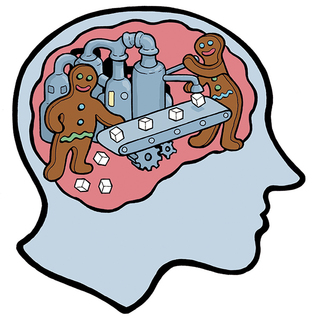 loading
loading
FindingsThe sugar in your headHow the brain makes fructose.  Gregory NemecView full imageFructose has long been a suspect in obesity and type 2 diabetes. Rats eat more heavily whenever fructose shows up in their cranial fluid, and researchers are not sure if humans do the same. But how does fructose get into the fluid that bathes our brains? Now, some sleuths at Yale have found a piece of the puzzle. When humans consume glucose, it enters the bloodstream and is carried into the brain. But very little fructose circulates in the bloodstream: it is metabolized so rapidly by the liver that, once ingested, most of it quickly disappears. A team of Yale researchers decided to find out whether the brain manufactures its own supply of fructose. Assistant professor of endocrinology Janice Hwang and her colleagues used magnetic resonance spectroscopy to scan the brains of eight healthy young adults. During the scan, which detects concentrations of different metabolic molecules, participants’ blood glucose levels were kept at a high level with an intravenous drip. As expected, glucose levels in the brain rose—but so did fructose, even though fructose levels in the bloodstream barely budged. The brain was converting excess glucose into fructose, using what’s called the polyol pathway. No one had shown that the brain could do this. (The work appeared in JCI Insight.) This discovery brings up further questions. Chronically high blood glucose has been linked to neurovascular and cognitive problems—but maybe fructose isn’t the reason why, not directly. In the process of producing fructose, the polyol pathway can generate the reactive molecules called free radicals, which can damage surrounding tissues. Could the brain be damaging itself as it generates fructose? The next step, says senior author and endocrinology professor Robert Sherwin, will be to study how obesity and diabetes affect fructose generation in the brain. The new polyol pathway discovery, he says, “raises questions that we never thought of before.”
|
|
1 comment
-

Moneerah romaih , 1:38pm May 23 2017 |  Flag as inappropriate
Flag as inappropriate
The comment period has expired.If the tissue damage happened what other disease will affect with diabetes